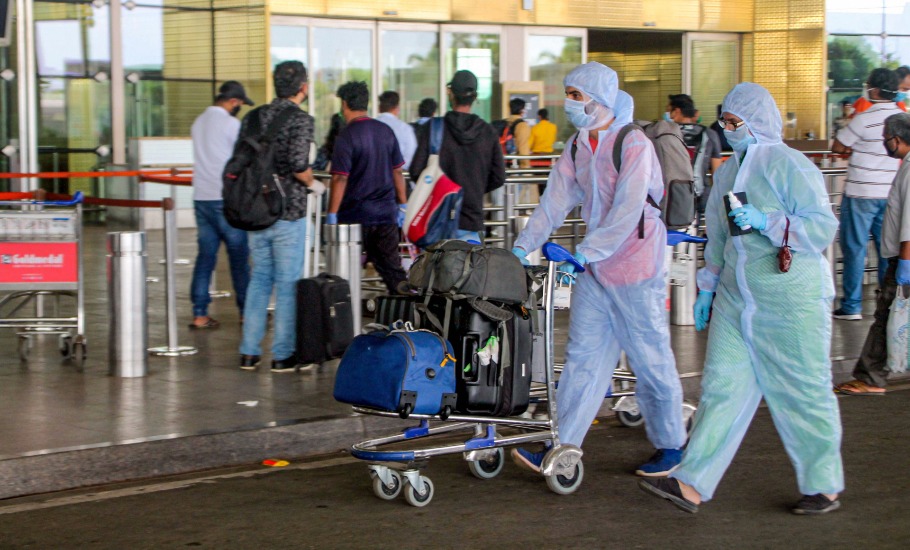
Travellers rue lengthy wait times as Omicron airport rules kick in
The tests are either costly or time-consuming; some States insist on home quarantine even for those who test negative

About a week after South Africa said it had identified a new strain of SARS-CoV-2 and the WHO named it ‘Omicron’, countries across the world have imposed travel restrictions. India joined in on Wednesday, December 1, with new airport and flight rules to check the spread of a fresh COVID outbreak.
On day one of implementation, the rules caused much anxiety at airports, and there were hours-long wait times for the tests and the report collection, said media reports. While in some States only the passengers from ‘at risk’ countries are tested, in some, all are tested.
Also read: Omicron facts are emerging; here’s what scientists say now
According to the Union Health Ministry, as on November 30, the ‘at risk’ nations are: All European countries including the UK, South Africa, Brazil, Botswana, China, Mauritius, New Zealand, Zimbabwe, Singapore, Hong Kong and Israel. All these are countries that have reported confirmed Omicron cases.
Testing on arrival
All the passengers from the ‘at risk’ countries are needed to give a test at the airport and show a negative result before heading home. There were complaints on Twitter as to why a negative report at the time of boarding the flight would not suffice — after all, in a plane full of people without the disease, how would a traveller catch the virus?
Passengers also complained of lengthy wait times — up to six hours — to get the test done and to collect the reports. Coming on top of the time taken for immigration, customs and baggage clearance, most found it to be exhausting.
While an antigen test costs ₹3,900 but needs a wait time of 30 minutes to three hours, an RT-PCR test costs only ₹500-900 but calls for a wait time of up to six hours. The latter is said to be more reliable.
Apart from all passengers from ‘at risk’ nations, around 2% of those from other countries are also tested for random samples. They are allowed to leave the airport before the result is given, but are told to home-isolate if COVID symptoms are seen.
State-specific rules
The above are rules put out by the Centre. Some of the State governments have announced their own measures, too. For instance, at the Bengaluru airport, even passengers from ‘at risk’ regions who test negative are told to home quarantine for a week and then repeat the test.
Maharashtra, among the worst hit by the previous two waves of COVID, has made institutional quarantine mandatory for all passengers from ‘at risk’ countries, irrespective of the test result. Also, with a wary eye on false negatives, it has told passengers from ‘at risk’ countries to give an RT-PCR test each on the second, fourth and seventh days after arrival.
Though no case of Omicron has been recorded till date in India, the tests on arrival have spotted some COVID cases. Six passengers from ‘at risk’ countries who landed in Maharashtra have tested positive. Genome sequencing and contact tracing are being carried out. In Chennai, all the 88 passengers who arrived from ‘at risk’ countries tested negative, said media reports.

